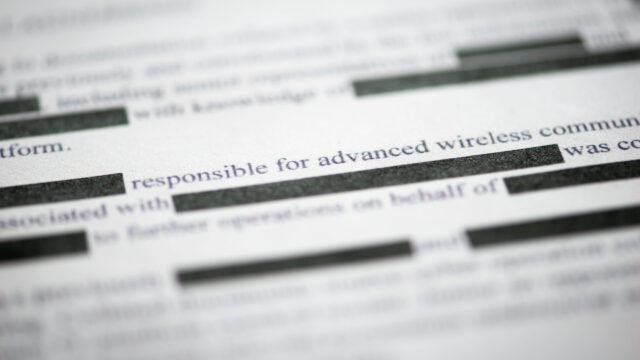D.C. Circuit Court of Appeals Agrees with EPIC and EFF: Government Cannot Hide Lethal Injection Company’s Name from Public Based on FOIA Exemption 4
February 1, 2023

In a win for government transparency, the D.C. Circuit Court of Appeals ruled yesterday that the Bureau of Prisons could not hide the identity of the private companies supplying the government with lethal injection drugs used for executions. EPIC and the EFF had filed an amicus brief in the case, Citizens for Responsibility and Ethics in Washington v. Department of Justice, supporting the plaintiff. CREW is a watchdog group that had attempted to use the Freedom of Information Act (“FOIA”) to learn more about the government’s purchasing of lethal injection drugs, but the Bureau of Prisons withheld contractor identity based on FOIA Exemption 4, which protects confidential commercial information.
EPIC and EFF explained that the case was important because federal agencies increasingly rely on private companies to develop decision-making, surveillance, and identity verification tools that impact individuals’ fundamental rights, so the identity of those companies is important for the public to track. EPIC and EFF explained that a contractor’s name is not commercial information because it does not directly relate to their ongoing commercial activities. Instead, it is crucial public information relating to how the government functions. The D.C. Circuit agreed, writing, “[T]he commercial consequences of disclosure are not on their own sufficient to bring confidential information within the protection of Exemption 4.” The case is now remanded to the lower court to re-evaluate what information must be produced in light of the D.C. Circuit’s ruling and further factual development.
EPIC uses the FOIA to track government uses of AI and surveillance technologies, sues federal agencies when they withhold information of public interest, and files amicus briefs in important cases interpreting the FOIA.

Support Our Work
EPIC's work is funded by the support of individuals like you, who allow us to continue to protect privacy, open government, and democratic values in the information age.
Donate